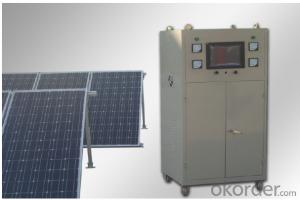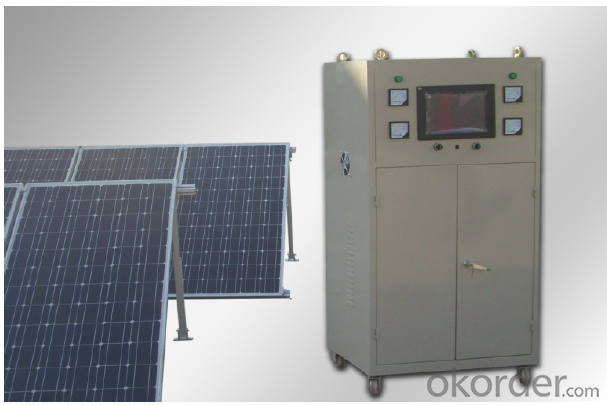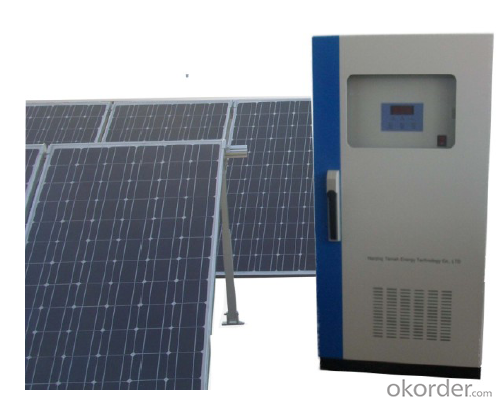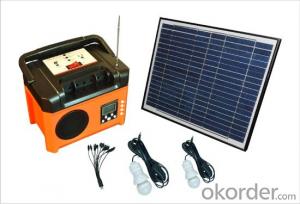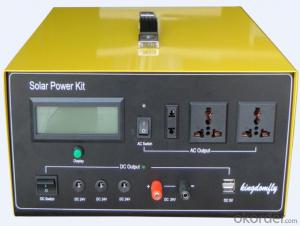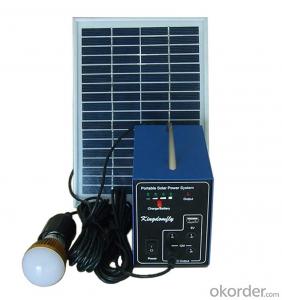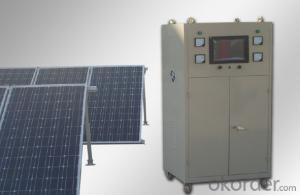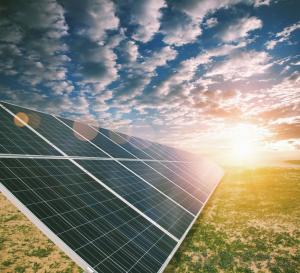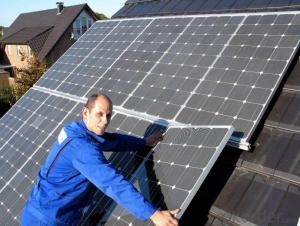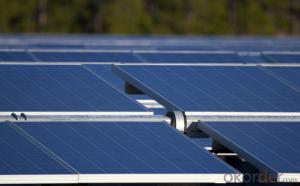Tesla Solar Energy Systems - CNBM-K8 5kW Solar Home System with Low Price
- Loading Port:
- China main port
- Payment Terms:
- TT OR LC
- Min Order Qty:
- 1 watt
- Supply Capability:
- 100000000 watt/month
OKorder Service Pledge
OKorder Financial Service
You Might Also Like
Specification
Description:
CNBM Solar is a world top leading solar manufacturer . With China government backup ,CNBM has set up
many warehouses in the world
The capacity of CNBMSolar is reach to 1GW, andmake sure each year our shipment capacity is more
Than 700-800MWs, at the same time, wehave set up the largest solar power station with our partner
in Ukraine.
CNBM is a Quality + Service orientedcompany with“Excellence at Each Step” approach, composed of
the finest components from TUV andIEC-certified partners around the world, CNBM modules consistently
undergo a variety of trials at thecompany’s Test & Development Centre, ensuring peak performance
capabilities. The company iscommitted to develop and provide the world with clean and renewable energy
to ease the energy shortages as wellas human kind’s impact on the environment.
Data:
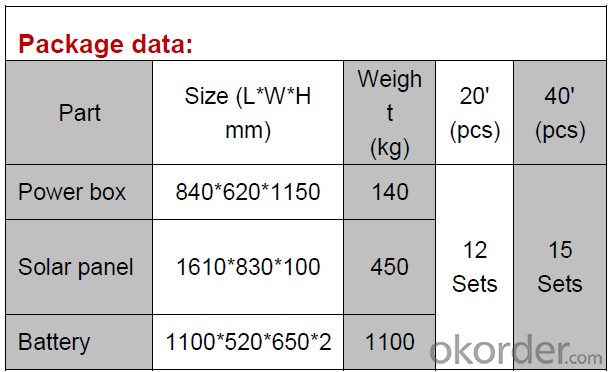
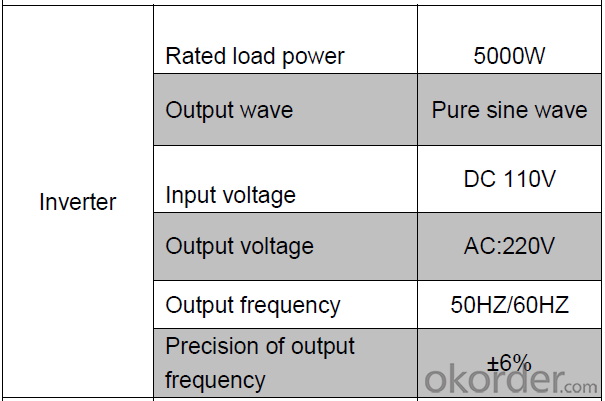
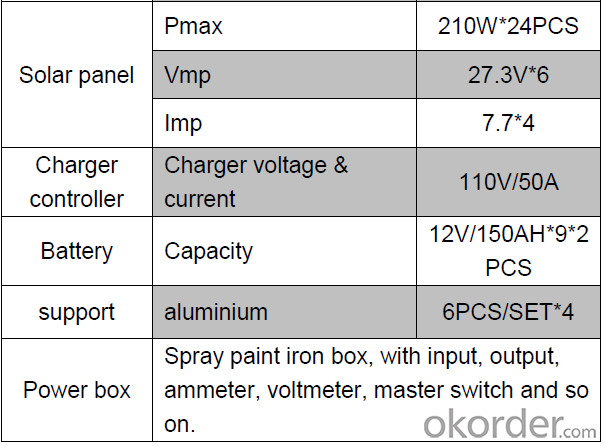
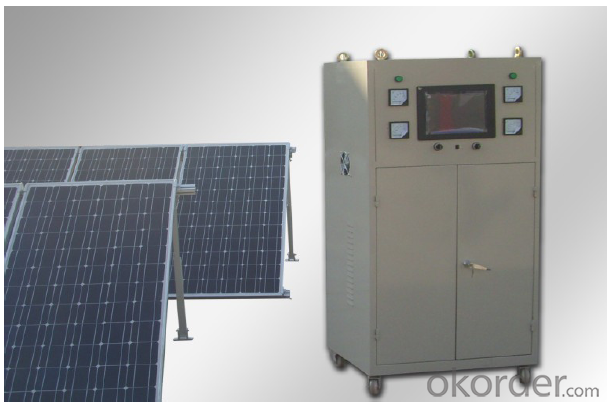
FAQ:Could you introduce more about CNBM ?
CNBM is abbreviation of China National Building Material Corp .It is a state owned company . One of Global Fortune 500 .
- Q: Can solar energy systems be used for powering sports stadiums?
- Yes, solar energy systems can be used for powering sports stadiums. Many sports stadiums around the world have already implemented solar energy systems to meet a portion or even all of their electricity needs. These systems typically consist of solar panels installed on the stadium roofs or in adjacent areas to harness sunlight and convert it into electricity. The generated energy can then be used to power the stadium's lighting, scoreboard, sound systems, and other electrical equipment. Utilizing solar energy helps reduce the carbon footprint of sports stadiums and promotes a more sustainable and environmentally friendly approach to powering large venues.
- Q: Can a solar energy system be installed on a building with a slate roof?
- Installing a solar energy system on a building with a slate roof is indeed possible. However, there are certain factors to consider and precautions to take into account due to the unique nature of the slate roof. Properly distributing and supporting the weight of the solar panels and mounting system is crucial to avoid any potential damage. Moreover, the installation team must exercise extra caution to prevent any cracks or breakages in the slate tiles during the process. To ensure a safe and successful installation, it is highly recommended to collaborate with experienced professionals who specialize in installing solar energy systems on slate roofs.
- Q: Can solar energy systems be used for heating water?
- Yes, solar energy systems can be used for heating water. Solar thermal systems, which use the sun's energy to heat water, are commonly used for domestic hot water systems and swimming pools. These systems consist of solar collectors that absorb sunlight and transfer the heat to water, providing an eco-friendly and cost-effective solution for heating water.
- Q: What is the role of solar energy systems in reducing energy waste?
- Solar energy systems play a crucial role in reducing energy waste by harnessing the power of the sun to generate clean and sustainable electricity. They provide an alternative to traditional energy sources that often rely on fossil fuels, which contribute to pollution and greenhouse gas emissions. By utilizing solar energy, we can significantly reduce our dependence on non-renewable resources and decrease the amount of energy waste associated with their extraction and production. Additionally, solar energy systems help to decentralize energy production, allowing for local generation and consumption, thereby minimizing transmission losses. Overall, the adoption of solar energy systems is vital in mitigating energy waste and promoting a more sustainable and efficient energy future.
- Q: How do solar energy systems impact the electricity grid?
- Solar energy systems can have a positive impact on the electricity grid by reducing the demand for traditional fossil fuel-based electricity generation. As more solar power is generated and fed into the grid, it helps to diversify the energy mix and decrease the reliance on non-renewable sources. Additionally, solar energy systems can help alleviate peak demand periods, especially during sunny days, leading to a more stable and reliable grid. However, the intermittent nature of solar power can also pose challenges for grid operators in terms of managing fluctuations and ensuring grid stability.
- Q: Can solar energy systems be installed on recreational vehicles?
- Yes, solar energy systems can be installed on recreational vehicles. These systems are commonly used to power various appliances and devices in RVs, providing a sustainable and renewable source of energy while on the road.
- Q: Can solar energy systems be used for emergency response operations?
- Yes, solar energy systems can be used for emergency response operations. Solar power can provide a reliable source of electricity during emergencies, ensuring critical operations such as communication, lighting, medical equipment, and water pumping are sustained. These systems are portable, easy to deploy, and do not rely on an external power grid, making them suitable for remote or disaster-stricken areas. Additionally, solar energy is a clean and renewable resource, reducing reliance on fossil fuels and minimizing environmental impact during emergency operations.
- Q: Can solar energy systems be used in areas with limited access to storage solutions?
- Yes, solar energy systems can be used in areas with limited access to storage solutions. While storage solutions like batteries are commonly used to store excess solar energy for use during cloudy or nighttime periods, alternative methods can be employed in areas with limited access to storage solutions. These methods include diverting excess energy to other uses like water heating or pumping, or connecting the solar energy system to the grid to export excess energy and import it when needed. Additionally, advancements in solar technologies and storage solutions are continuously being developed to suit the needs of areas with limited access to storage.
- Q: Can solar panels be integrated into building materials like windows or roofing tiles?
- Yes, solar panels can be integrated into building materials like windows or roofing tiles. These integrated solar panels, also known as building-integrated photovoltaics (BIPV), allow for the generation of electricity while being seamlessly incorporated into the design of the building. This integration not only reduces the need for separate solar panels but also enhances the aesthetics and functionality of the building by harnessing solar energy.
- Q: Can solar energy systems be used to power remote locations?
- Solar energy systems are definitely capable of powering remote locations. In fact, they are particularly well-suited for such applications where access to the conventional power grid may be limited or non-existent. By installing solar panels in remote areas that receive sufficient sunlight, electricity can be generated even in off-grid locations. The typical solar energy system for remote locations consists of photovoltaic (PV) panels, which convert sunlight into electricity, and a battery storage system to store excess energy for use during non-sunlight hours. This ensures a reliable and continuous power supply, even in areas without grid access. Rural communities, remote research facilities, off-grid cabins, and telecommunications towers can greatly benefit from solar energy systems. They provide a sustainable and renewable source of energy, reducing dependence on fossil fuels and minimizing environmental impact. Furthermore, solar energy systems require minimal maintenance and are cost-effective in the long term, making them an ideal solution for powering remote locations.
Send your message to us
Tesla Solar Energy Systems - CNBM-K8 5kW Solar Home System with Low Price
- Loading Port:
- China main port
- Payment Terms:
- TT OR LC
- Min Order Qty:
- 1 watt
- Supply Capability:
- 100000000 watt/month
OKorder Service Pledge
OKorder Financial Service
Similar products
Hot products
Hot Searches
Related keywords
